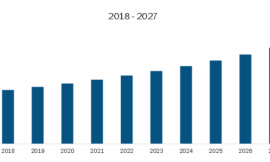Introduction
Sustainable weight loss requires more than quick fixes or temporary solutions. Effective slimming techniques focus on creating lasting lifestyle changes that promote gradual, healthy weight reduction while maintaining overall wellbeing. In this comprehensive guide, we’ll explore evidence-based approaches to sustainable weight management that can help you achieve your goals while avoiding the common pitfalls of yo-yo dieting.
Understanding Sustainable Weight Loss
Sustainable slimming differs from crash diets by emphasizing gradual progress and healthy habits that can be maintained indefinitely. The foundation of sustainable weight loss includes:
- Realistic goal-setting with moderate, achievable targets
- Balanced nutrition that doesn’t severely restrict food groups
- Regular physical activity appropriate for your fitness level
- Behavioral changes that address emotional eating and lifestyle factors
- Consistent monitoring and adjustment of your approach
Professional Guidance vs. DIY Approaches
Benefits of Professional Weight Loss Care
Working with healthcare professionals offers several advantages for sustainable weight management:
- Comprehensive health assessments to identify underlying issues
- Personalized plans based on your specific needs and medical history
- Expert guidance on nutrition and exercise
- Access to specialized tools and techniques
- Regular monitoring and accountability
- Professional support for overcoming plateaus
When to Consider Professional Help
Professional weight loss care may be particularly beneficial if you:
- Have significant weight to lose
- Have tried multiple approaches without success
- Have underlying health conditions
- Need structured support and accountability
- Want evidence-based strategies rather than fad approaches
Key Components of Sustainable Slimming
Nutritional Strategies
Sustainable nutrition for weight management focuses on:
- Creating a moderate caloric deficit (typically 500-750 calories below maintenance)
- Emphasizing nutrient-dense whole foods
- Including adequate protein to preserve muscle mass
- Balancing macronutrients based on individual needs
- Planning for occasional indulgences without derailing progress
- Developing a positive relationship with food
Physical Activity
Effective exercise for sustainable weight loss includes:
- Combining cardiovascular exercise with strength training
- Starting with manageable activities and gradually increasing intensity
- Finding enjoyable forms of movement to enhance adherence
- Incorporating daily movement beyond structured exercise
- Adjusting workouts based on energy levels and recovery needs
Behavioral Modifications
Sustainable weight loss requires addressing the psychological aspects of eating:
- Identifying emotional triggers for overeating
- Developing alternative coping strategies for stress
- Practicing mindful eating techniques
- Creating environmental changes that support healthy choices
- Building a supportive social network
- Establishing consistent sleep patterns
Maintenance Strategies for Long-Term Success
Maintaining weight loss often proves more challenging than the initial reduction. Effective maintenance strategies include:
- Transitioning gradually from weight loss to maintenance calories
- Continuing regular monitoring of weight and behaviors
- Maintaining consistent eating patterns with planned flexibility
- Staying physically active, often at higher levels than during weight loss
- Developing strategies for navigating challenging situations
- Regular self-assessment and adjustment of your approach
Troubleshooting Common Challenges
Plateaus
Weight loss plateaus are normal and can be addressed by:
- Reassessing caloric intake as your body composition changes
- Varying exercise intensity or modality
- Examining potential hidden calories in your diet
- Focusing on non-scale victories during plateau periods
- Considering professional guidance if plateaus persist
Emotional Eating
For those struggling with emotional eating:
- Develop awareness of emotional triggers
- Create alternative coping strategies
- Practice mindful eating techniques
- Consider professional support from therapists specializing in eating behaviors
Maintaining Motivation
To sustain motivation for the long term:
- Set process-oriented goals rather than just outcome goals
- Celebrate non-scale victories regularly
- Build a supportive community
- Track progress using multiple metrics
- Remind yourself of your personal “why” for weight management
Conclusion
Sustainable slimming techniques focus on creating a lifestyle that supports healthy weight management rather than pursuing quick fixes. By combining appropriate nutrition, regular physical activity, and behavioral strategies, you can achieve lasting results that improve both physical health and quality of life.
For many individuals, professional weight loss care provides the structure, expertise, and accountability needed to navigate this journey successfully. Whether you choose a self-directed approach or seek professional guidance, remember that consistency, patience, and self-compassion are essential components of sustainable weight management.



